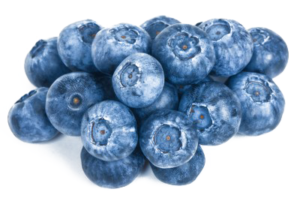 OK, this study was done in mice, but it's the kind of study results that everyone hopes (and thinks) is also true for humans. So drink a nice cuppa black tea and think about how you're increasing bacteria in the gut associated with weight loss.
OK, this study was done in mice, but it's the kind of study results that everyone hopes (and thinks) is also true for humans. So drink a nice cuppa black tea and think about how you're increasing bacteria in the gut associated with weight loss.
Black tea (as well as green tea) has polyphenols that stimulate the growth of gut bacterium and the formation of short-chain fatty acids. By the way, the mice were given decaffeinated tea extracts, so theoretically both decaf and caffeinated tea should have benefits. The big question though is - will drinking black tea daily actually result in weight loss? From Medical Xpress:
Black tea may help with weight loss, too
UCLA researchers have demonstrated for the first time that black tea may promote weight loss and other health benefits by changing bacteria in the gut. In a study of mice, the scientists showed that black tea alters energy metabolism in the liver by changing gut metabolites. The research is published in the European Journal of Nutrition. The study found that both black and green tea changed the ratio of intestinal bacteria in the animals: The percentage of bacteria associated with obesity decreased, while bacteria associated with lean body mass increased.
Previous studies indicated that chemicals in green tea called polyphenols are absorbed and alter the energy metabolism in the liver. The new findings show that black tea polyphenols, which are too large to be absorbed in the small intestine, stimulate the growth of gut bacterium and the formation of short-chain fatty acids, a type of bacterial metabolites that has been shown to alter the energy metabolism in the liver.
The researchers also collected samples from the mice's large intestines (to measure bacteria content) and liver tissues (to measure fat deposits). In the mice that consumed either type of tea extract, there was less of the type of bacteria associated with obesity and more of the bacteria associated with lean body mass. However, only the mice that consumed black tea extract had an increase in a type of bacteria called Pseudobutyrivibrio, which could help explain the difference between how black tea and green tea change energy metabolism.
The new study also concluded that both green tea and black tea have different effects on liver metabolism. According to Henning, the molecules in green tea are smaller and can more readily be absorbed into the body and reach the liver directly, while black tea molecules are larger and stay in the intestine rather than being absorbed. When black tea molecules stay in the intestinal tract, they enhance the growth of beneficial bacteria and the formation of microbial metabolites involved in the regulation of energy metabolism. [Original study.]

 As we know, chronic inflammation is linked to cancer and other diseases. It is long-term persistent low-grade inflammation, and it has a "wear and tear" effect on the body. What causes chronic inflammation? Being overweight or obese, sedentary lifestyle, Western (low fiber, high processed foods and meat) diet, chronic illnesses, viruses or bacteria (e.g., gum disease), smoking, air pollution, stress, excessive alcohol intake. It often does not have symptoms, but doctors can test for C-reactive protein levels (CRP), which increase when the body is inflamed. So you absolutely want to lower chronic inflammation if you can.
As we know, chronic inflammation is linked to cancer and other diseases. It is long-term persistent low-grade inflammation, and it has a "wear and tear" effect on the body. What causes chronic inflammation? Being overweight or obese, sedentary lifestyle, Western (low fiber, high processed foods and meat) diet, chronic illnesses, viruses or bacteria (e.g., gum disease), smoking, air pollution, stress, excessive alcohol intake. It often does not have symptoms, but doctors can test for C-reactive protein levels (CRP), which increase when the body is inflamed. So you absolutely want to lower chronic inflammation if you can. Well, it looks like the researchers devised a nutritional supplement, which they then tested and found beneficial effects on the thinking processes of older adults - so some bias there, but still interesting. What was in the supplement they called NT-020? Extracts of blueberries, green tea, vitamin D3, and amino acids such as carnosine. Science Daily:
Well, it looks like the researchers devised a nutritional supplement, which they then tested and found beneficial effects on the thinking processes of older adults - so some bias there, but still interesting. What was in the supplement they called NT-020? Extracts of blueberries, green tea, vitamin D3, and amino acids such as carnosine. Science Daily: